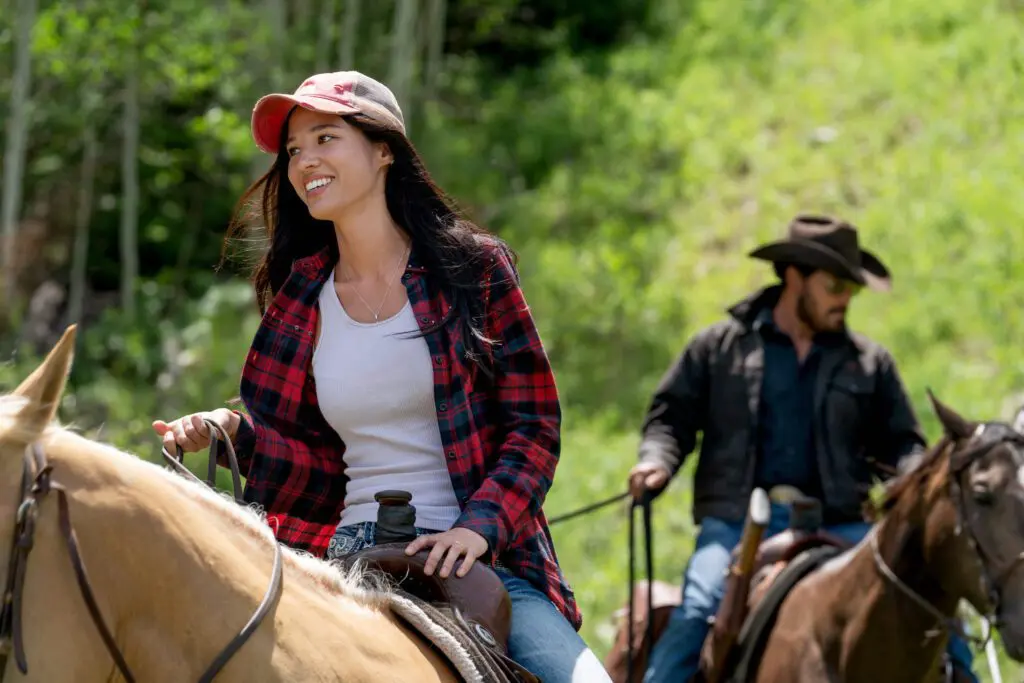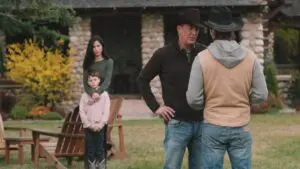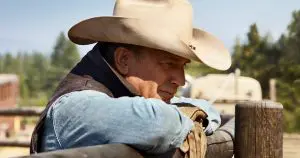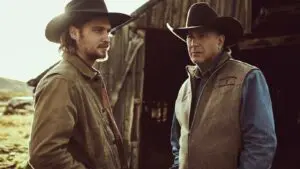Summary
“Freight Trains and Monsters” is as contemplative as the season premiere, but lets the threat of venture capitalists and the repercussions of frontier justice loom large in the background.
This recap of Yellowstone season 3, episode 2, “Freight Trains and Monsters”, contains spoilers. You can check out our thoughts on the previous episode by clicking these words.
“Freight Trains and Monsters” almost immediately continues a theme that was felt strongly in Yellowstone’s Season 3 premiere and continues to crop up again and again in this week’s hour: the purity and value of good, old-fashioned, honest living. Of course, the Dutton’s aren’t always good or honest, but they’re certainly old-fashioned, and in John’s camping trip with Tate and later in Monica’s outdoorsy sexy time with Kayce, that sentiment is made explicit. Why can’t we just live like this all the time? The answer is obvious and is discussed openly during the episode’s most charged scene, which is shared by Beth and newcomer Roarke Morris. It’s because those with too much money can’t help but buy, portion up and sell off the land at a profit. And not just this land – all land. Everything is up for grabs; everything will, eventually, be bought and sold.
People complained that last week’s premiere was too slow, and Yellowstone Season 3, Episode 2 isn’t much quicker on its feet. But it’s planted confidently in place, and it keeps reiterating the same few ideas because they’re compelling and make a solid foundation for conflict throughout the rest of the season. That aforementioned scene is a good example. Beth, always the smartest character in the room, figures out that Roarke is working on behalf of the money men who’re buying up all Yellowstone’s land, and that he ultimately plans to build an airport. And when she goes to see him at Cross Creek Ranch, where’s he smugly rolling a joint, he’s totally unapologetic about it. He doesn’t plan to just build an airport, but a ski resort and perhaps a little town. He isn’t worried about the ranchers because he’s going to make them so rich that they don’t have to be ranchers anymore.
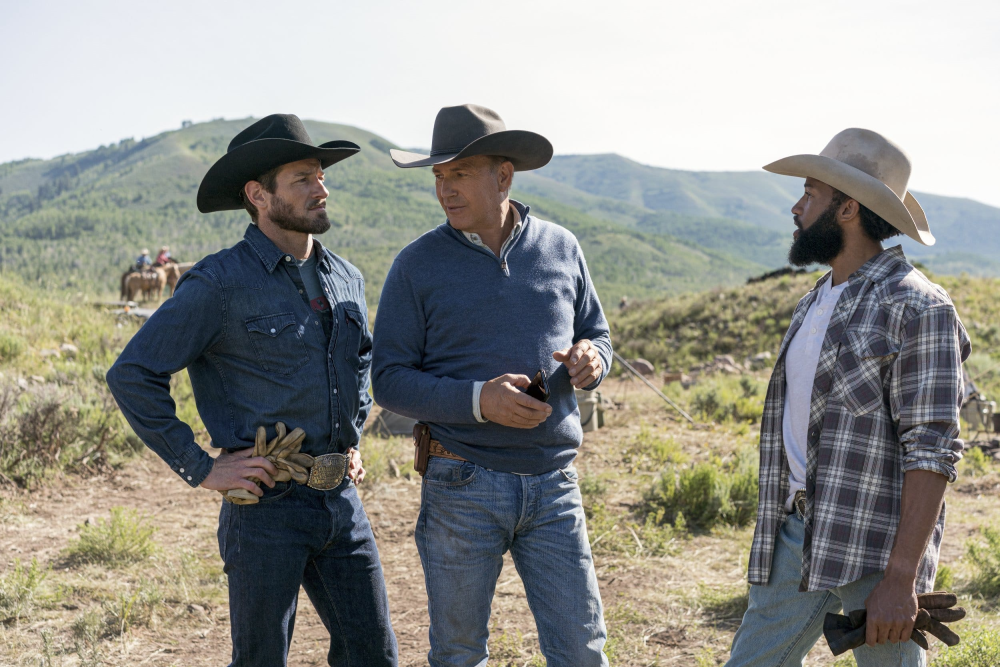
But in this, he’s overlooking something crucial: What if the ranchers want to be ranchers? At the top of the episode, when Tate asks his grandfather why they can’t live like this every day, John confesses that he asks himself the same question all the time. Deep down he knows it’s because they won’t be allowed to, and that’s probably a bit heavy for his recently-kidnapped grandson to hear, but the idealism in his response is loud and clear. If it were up to him, he would live like this, away from his sprawling ranch, his vehicles, and his influence. During these scenes, John intentionally relocates the campsite to somewhere without a phone signal so that he doesn’t have to be bothered by work. Being out here, among the land, is what he loves, more than money or being livestock commissioner or anything else. The simple pleasures are the cheapest.
This mentality is everywhere in “Freight Trains and Monsters”. Kayce lays it out simply to a wolf: this is mine, this is yours, but if you cross the boundaries I’ll kill you. It’s the show’s whole ideology in microcosm. But Taylor Sheridan, who wrote this episode and last week’s, seems a lot more confident in expressing it now. The macho bluster he’s known for has taken on a contemplative, almost melancholy tone. The men in this story aren’t trying to be tough anymore. They’re just trying to be left alone.
They won’t be, of course. As well as the looming land deals, this episode also finds Jamie getting into bother again; dispatching a livestock agent to deal with a couple of troublemakers, he encourages some frontier justice that finds Agent Hendon taking things too far and accidentally killing both suspects in a horse trailer, landing himself in jail. It functions as a cliffhanger, but it’s hardly a surprise. Jamie’s a consistent source of conflict entirely because he isn’t possessed of the same traditionalist masculinity that Sheridan is so widely criticized for exploring. He’s probably more book-smart than your average cowboy, but is stupider all the same; his naïve, self-interested attempts to co-opt their to-the-point way of doing things always backfire because he isn’t really built that way. It’s all posturing. At his heart, he’s as much of a venture capitalist as Roarke, with none of the self-awareness.

